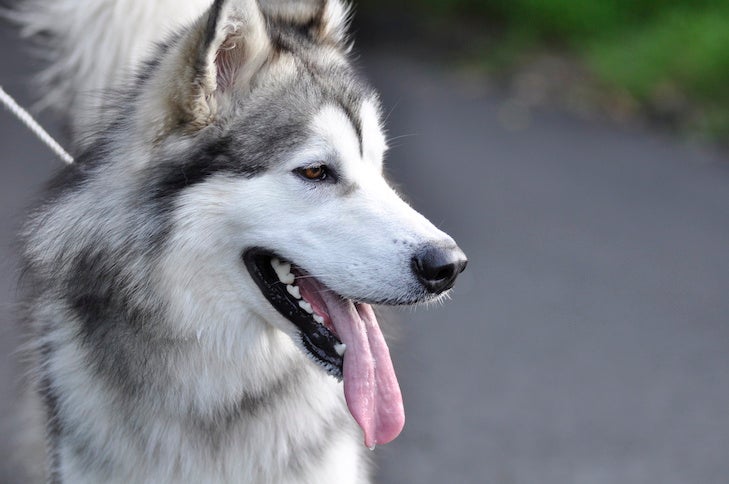If you’ve ever seen your dog panting in the summer, you know it’s because she’s trying to cool down. Or, if you have a breed such as a Pug or Bulldog, you’ve most likely seen your dog pant frequently. This heavy breathing is normal, due to their short snouts. However, there may be other, more serious causes for panting that every dog owner should be aware of.
Overexertion
Dogs who are excited or are engaging in heavy exercise (like running or playing fetch) will pant, much like a human can become out of breath after a vigorous run. They may slow down their run and lie down. This should be taken as a sign that they need a break from the current activity. Be sure cool water is available for your dog.
Pain
A dog that’s in pain may pant excessively, especially if she’s just experienced something traumatizing. Other signs of pain include vocalization, trembling, restlessness, increased breathing rate, limping, and licking or biting at the site of pain or injury.

Heatstroke
Dogs do not sweat like humans do. They pant to keep themselves cool. If it’s very hot outside or if the dog is dehydrated, it can be much harder for them to breathe, thus they will pant heavily to cool down. You can easily prevent heatstroke in the summer by giving your dog enough shade and cool water, limit outside time, and NEVER leave your dog in a locked car with the windows up. Even windows that are cracked open will not provide enough air for your dog, and death can occur in minutes.
Heart and Respiratory Problems
Signs of heart failure, lung tumors, and even choking in a dog will include heavy panting, breathing difficulty, and coughing. This is especially something to watch out for in older dogs.
Toxic Or Allergic Reaction
A dog that’s ingested something poisonous or reaction-causing may pant, as well as drool, vomit, or become lethargic. It could be a side effect of a medication, but other times it could be a fatal reaction. Keep all poisonous products, such as household cleaners, human medications, and foods that are toxic to dogs out of reach.
If you suspect your dog is in serious danger because of her panting, be sure to check her gums. If they are pale white or blue, your dog isn’t getting enough oxygen, and immediate veterinary attention is necessary.
This article is intended solely as general guidance, and does not constitute health or other professional advice. Individual situations and applicable laws vary by jurisdiction, and you are encouraged to obtain appropriate advice from qualified professionals in the applicable jurisdictions. We make no representations or warranties concerning any course of action taken by any person following or otherwise using the information offered or provided in this article, including any such information associated with and provided in connection with third-party products, and we will not be liable for any direct, indirect, consequential, special, exemplary or other damages that may result, including but not limited to economic loss, injury, illness or death.

